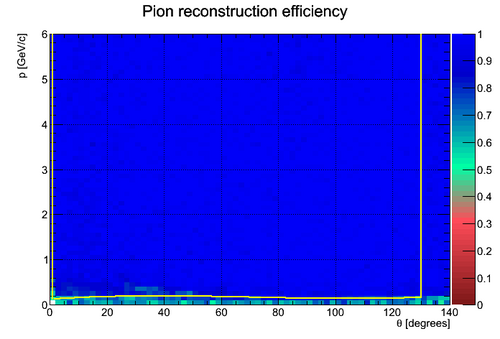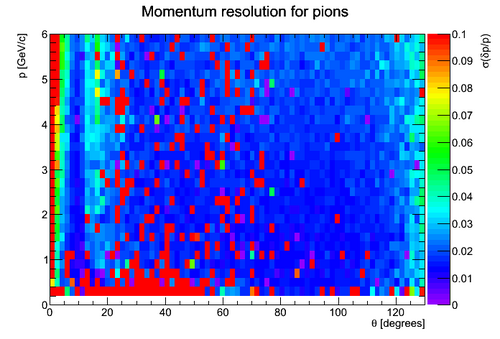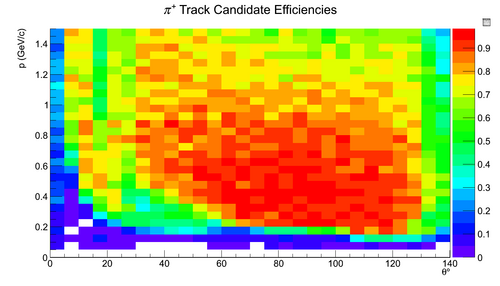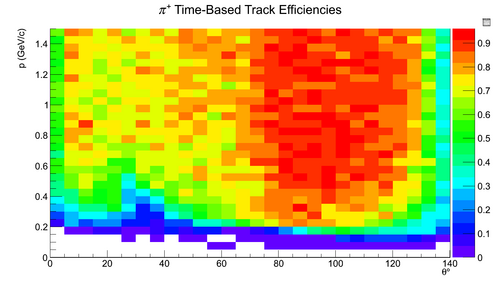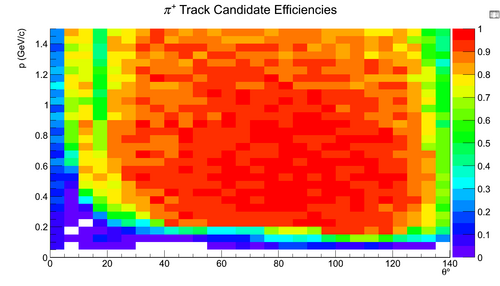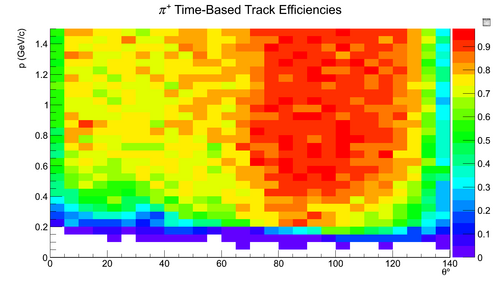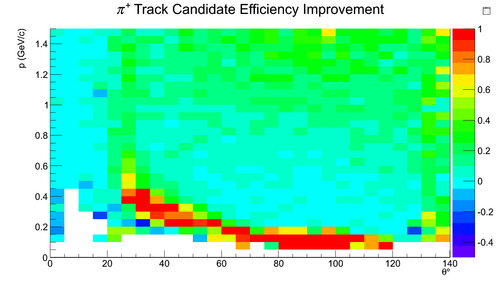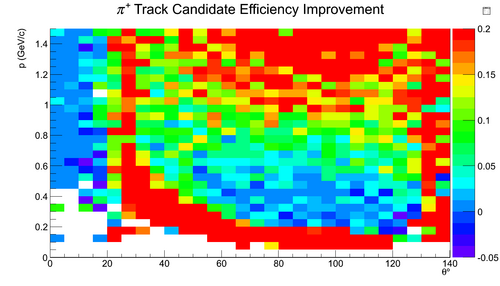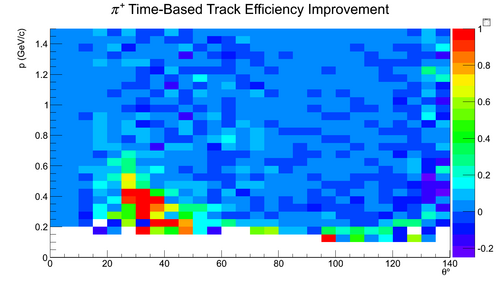Difference between revisions of "Mattione Update 09042013"
From GlueXWiki
(→γp→π+π-p (ρ Mesons)) |
(→γp→π+π-p (ρ Mesons)) |
||
| Line 49: | Line 49: | ||
=== Protons === | === Protons === | ||
[[Image:Mattione_Update_09042013_Thrown_Proton_Rho.png|left|250px]] | [[Image:Mattione_Update_09042013_Thrown_Proton_Rho.png|left|250px]] | ||
| + | <br style="clear:both;"/> | ||
{| border="1" cellpadding="2" align="left" valign="top" style="text-align:center;" | {| border="1" cellpadding="2" align="left" valign="top" style="text-align:center;" | ||
!width="200"| Stage | !width="200"| Stage | ||
| Line 64: | Line 65: | ||
[[Image:Mattione_Update_09042013_EfficiencyDiffZoomed_TimeBased_Rho_Proton.png|thumb|left|250px]] | [[Image:Mattione_Update_09042013_EfficiencyDiffZoomed_TimeBased_Rho_Proton.png|thumb|left|250px]] | ||
|} | |} | ||
| + | <br style="clear:both;"/> | ||
=== Efficiencies === | === Efficiencies === | ||
Revision as of 18:20, 3 September 2013
Contents
CDC Track Finding
Single π+ Track
Single π+ Reconstruction: Current (Trunk) Code, trackeff_hists plugin
- The below plots show the track reconstruction efficiency and resolution for the trunk using the single-track scripts plugin (trackeff_hists).
- However, this efficiency is extremely misleading:
- If a track is reconstructed using any of the hits that were on the thrown track it is considered "found."
- This is regardless of whether the reconstructed track momentum is anywhere close to the thrown values.
Single π+ Reconstruction: Current (Trunk) Code, NEW trackeffv2 plugin
- The below plots show the track candidate and time-based track reconstruction efficiency for the trunk using a new plugin (trackeff_hists).
- This plugin compares matches all of the thrown and reconstructed particles in the event, and requires that their momentum be "close."
- "Close" for track candidates is defined as: Δp/p < 20%, Δθ < 40 degrees, Δφ < 40 degrees, ΔVertex-Z < 1 km
- For thrown tracks with θ < 5 degrees, there is no cut on Δφ
- "Close" for time-based tracks is defined as: Δp/p < 10%, Δθ < 15 degrees, Δφ < 15 degrees, ΔVertex-Z < 10 cm
- "Close" for track candidates is defined as: Δp/p < 20%, Δθ < 40 degrees, Δφ < 40 degrees, ΔVertex-Z < 1 km
- Note that the degradation of the efficiency at forward angles matches the track resolution plot in the previous section.
- If I expand the requirements for the "Close" window, the efficiency increases, and the chosen parameters were somewhat arbitrary.
Single π+ Reconstruction: NEW Spiral Code
- The below plots show the track candidate and time-based track reconstruction efficiencies for the new spiral code.
- Note: The trackeffv2 plugin compares matches all of the thrown and reconstructed particles in the event, and requires that their momentum be "close."
- "Close" for track candidates is defined as: Δp/p < 20%, Δθ < 40 degrees, Δφ < 40 degrees, ΔVertex-Z < 1 km
- For thrown tracks with θ < 5 degrees, there is no cut on Δφ
- "Close" for time-based tracks is defined as: Δp/p < 10%, Δθ < 15 degrees, Δφ < 15 degrees, ΔVertex-Z < 10 cm
- "Close" for track candidates is defined as: Δp/p < 20%, Δθ < 40 degrees, Δφ < 40 degrees, ΔVertex-Z < 1 km
- The below plots show the improvements in the track candidate and time-based track reconstruction efficiencies with the new spiral code.
γp→π+π-p (ρ Mesons)
Protons
| Stage | Efficiency - Current Code | Efficiency - Spiral Code | Improvement - Current Code | Improvement - Spiral Code |
|---|---|---|---|---|
| Track Candidates | ||||
| Track Candidates |
Efficiencies
- The below plots show the track candidate and time-based track reconstruction efficiencies for both track finding codes.
- Note: The definition of closeness is the same as before (see the single-track section).
- The below plots show the improvements in the track candidate and time-based track reconstruction efficiencies with the new spiral code.
